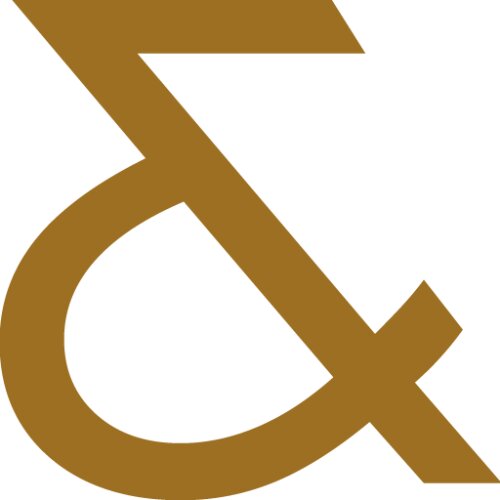Best Reinsurance Lawyers in Paris
Share your needs with us, get contacted by law firms.
Free. Takes 2 min.
List of the best lawyers in Paris, France
About Reinsurance Law in Paris, France
Reinsurance is a critical component of the insurance industry in Paris, France, as it helps insurers manage risk by spreading potential losses across multiple parties. This industry allows insurers to protect themselves against large claims by purchasing insurance policies from other insurance companies. The legal framework surrounding reinsurance in Paris is well-established, with specific regulations and laws that govern the relationships between the primary insurers and reinsurers. Paris, being a major financial hub in Europe, houses many international reinsurance firms, making it an important center for reinsurance activities.
Why You May Need a Lawyer
There are several scenarios in which you might require legal assistance with reinsurance in Paris:
- Complex Contract Negotiations: Reinsurance contracts can be complex, involving significant negotiations between parties. A lawyer can help ensure that the terms are fair and protect your interests.
- Dispute Resolution: If a disagreement arises regarding claim payments, coverage issues, or policy interpretations, legal expertise may be required to resolve these disputes.
- Regulatory Compliance: Ensuring compliance with local and international reinsurance regulations is crucial. Legal advice can help you navigate these requirements.
- Fraud Prevention: A lawyer can help protect against and respond to fraudulent activities within reinsurance agreements.
- Mergers and Acquisitions: If you are involved in a business transaction involving reinsurance companies, legal guidance is essential for due diligence and compliance.
Local Laws Overview
Reinsurance in Paris is governed by both French laws and European Union regulations. Key aspects include:
- French Insurance Code: Sets the framework for insurance and reinsurance practices, including licensing requirements and financial obligations.
- Solvency II Directive: An EU regulation that affects all EU insurance companies, including those in France, focusing on capital requirements and risk management.
- Data Protection Regulations: Compliance with GDPR (General Data Protection Regulation) is critical, especially when handling customer and client data.
- Contract Law: Understanding of French contract law is necessary as it applies to the drafting and enforcement of reinsurance agreements.
Frequently Asked Questions
What is reinsurance?
Reinsurance is the practice where an insurer transfers a portion of its risks to another insurer, known as the reinsurer, to reduce the likelihood of paying a large obligation arising from an insurance claim.
Why is reinsurance important?
Reinsurance provides financial stability to insurance companies by mitigating the risk of large payouts, allowing them to assume more policyholders and offer coverage that might otherwise be too risky.
How does reinsurance differ from insurance?
While insurance involves individuals or entities purchasing policies to protect against specific risks, reinsurance involves insurance companies seeking coverage for the risks they underwrite.
What should I look for in a reinsurance contract?
Critical elements include coverage limits, exclusions, premium calculations, and the responsibilities and obligations of both parties.
Can reinsurance affect my insurance premiums?
Indirectly, yes. By spreading risk, reinsurance can stabilize premiums for policyholders, although the impact varies depending on the primary insurer's business strategy.
What are the common reinsurance structures?
The primary structures include treaty reinsurance, where coverage is provided for all policies of a certain type, and facultative reinsurance, which covers individual risks.
Who regulates the reinsurance industry in Paris?
The industry is regulated by the Autorité de Contrôle Prudentiel et de Résolution (ACPR) and adheres to the EU's Solvency II framework.
What legal issues can arise in reinsurance?
Common issues include contract disputes, regulatory compliance challenges, and disagreements over claim handling.
Do I need a lawyer to negotiate a reinsurance contract?
Given the complexity and financial implications, it is advisable to seek legal counsel to negotiate terms effectively and protect your interests.
How can I ensure my reinsurance agreement complies with local laws?
Consulting with a legal expert familiar with French and EU insurance regulations is crucial to ensure compliance with all applicable laws.
Additional Resources
Here are some resources and organizations that can provide further assistance with reinsurance in Paris:
- Autorité de Contrôle Prudentiel et de Résolution (ACPR): The French authority responsible for supervision and regulation of the insurance sector.
- The French Insurance Federation (FFA): Offers insights and guidelines on current insurance practices.
- European Insurance and Occupational Pensions Authority (EIOPA): Provides information on EU regulations affecting the insurance industry.
- Local Law Firms: Many local law firms specialize in insurance and reinsurance law and can offer tailored legal advice.
Next Steps
If you need legal assistance with reinsurance activities in Paris, consider taking the following steps:
- Consult a Specialist: Reach out to a lawyer specializing in insurance and reinsurance law for personalized advice.
- Gather Documentation: Compile all relevant documents, contracts, and correspondence for your initial consultation.
- Research: Gain a basic understanding of your legal situation and any applicable laws to better communicate your needs to the legal professional.
- Consider Mediation or Arbitration: If disputes arise, mediation or arbitration might be viable alternatives to litigation.
Lawzana helps you find the best lawyers and law firms in Paris through a curated and pre-screened list of qualified legal professionals. Our platform offers rankings and detailed profiles of attorneys and law firms, allowing you to compare based on practice areas, including Reinsurance, experience, and client feedback.
Each profile includes a description of the firm's areas of practice, client reviews, team members and partners, year of establishment, spoken languages, office locations, contact information, social media presence, and any published articles or resources. Most firms on our platform speak English and are experienced in both local and international legal matters.
Get a quote from top-rated law firms in Paris, France — quickly, securely, and without unnecessary hassle.
Disclaimer:
The information provided on this page is for general informational purposes only and does not constitute legal advice. While we strive to ensure the accuracy and relevance of the content, legal information may change over time, and interpretations of the law can vary. You should always consult with a qualified legal professional for advice specific to your situation.
We disclaim all liability for actions taken or not taken based on the content of this page. If you believe any information is incorrect or outdated, please contact us, and we will review and update it where appropriate.
















